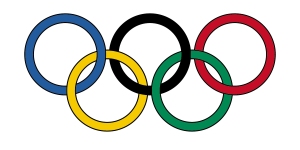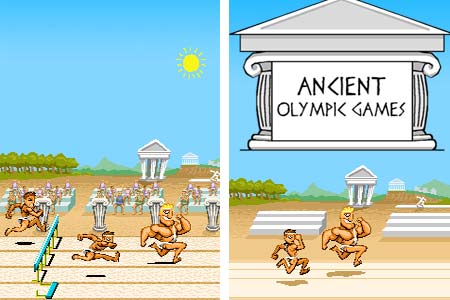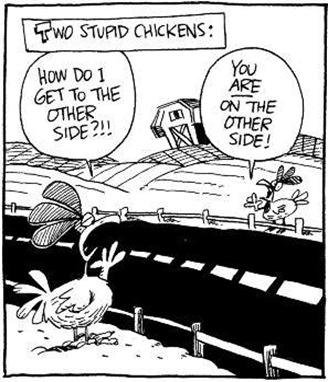Good luck, boys and girls!
Tuesday, 21 June 2011
L'hora dels adeus
Good luck, boys and girls!
Wednesday, 15 June 2011
New Zealand
Australia, the Antipodes
Jamaica, a Caribbean Country
Friday, 10 June 2011
Canada: Our Northern Neighbour
Wednesday, 8 June 2011
Wednesday, 1 June 2011
2.011: International Year of Forests
Self-Steem
Tuesday, 24 May 2011
English Speaking Countries Project (Outlines)

English Speaking Countries Project (Windows Live Movie Maker Tutorials)
Monday, 23 May 2011
Food Vocabulary (Students' Presentations) 3rd Part
This is Carmen F. presentation:
The second one is a coproduction between Saba and Bingjie:
Thursday, 19 May 2011
Dialogues from Unit 6 (2nd ESO)
Food Vocabulary (Students' Presentations) 2nd Part
Tuesday, 17 May 2011
Food Vocabulary (Students' Presentations)
Monday, 16 May 2011
Dialogues from Unit 6 (4th ESO)
Monday, 2 May 2011
What are you sinking about?
Monday, 25 April 2011
Easter

WHAT IS EASTER?
Easter is the celebration of Jesus Christ's rising from the dead after His crucifixion which took place on what we now say Good Friday.
Easter is usually celebrated on the first Sunday after the full moon following the Vernal or Spring Equinox on March 21st. This can be any Sunday between March 22nd and April 25th. It is the most sacred of all the Christian holidays or celebrations.
Christ's return (or rising) from death is called the Resurrection. According to the Scriptures, Christ's tomb was empty three days after His death, which is commemorated on Good Friday. His followers saw Him and talked to Him after this. Christians therefore believe that they have the hope of a new life (an everlasting life in Heaven) after their earthly death.
EASTER IN THE ANCIENT DAYS
Although of course Easter is a Christian festival, it has many pre-Christian. Eastre was the Anglo-Saxon name of a Teutonic goddess of spring and fertility. A month was dedicated to her, corresponding to our month of April. Her festival was celebrated on the day of the vernal equinox and traditions associated with the festival live on in the modern day Easter rabbit, a symbol of fertility, and in coloured Easter eggs. These were originally painted with brilliant colours to represent the warmth and sunlight of spring, and used in Easter-egg rolling contests or given as gifts.
THE HOLY WEEK
The Holy week is the last week of Lent. Lent is the forty days special season prior to Easter Sunday.

The Holy Week begins with the observance of Palm Sunday, the Sunday before Easter Sunday. The name, Palm Sunday originated from Jesus’ entry in Jerusalem. The crowd laid carpets of palms on the street for Him. The Last Supper is commemorated on Holy Thursday of special week (often called Maundy Thursday) and Friday is the anniversary of the crucifixion of Jesus Christ on the cross. The Lenten season and Holy week end with Easter Sunday (the Resurrection of Jesus Christ).
THE NAME EASTER
Easter was called Pesach by early Christians. It is the Hebrew name for Passover. Today, the names for Easter in many cultures in Europe are similar to the word Pesah. The English name Easter is much newer. When the early English Christians wanted others to accept Christianity, they decided to use the name Easter for this holiday so that it would match the name of the old spring celebration in honour of Eastre, goddess of spring and fertility. This made it more comfortable for other people to accept Christianity.
SYMBOLS OF EASTER
- Easter eggs & baby chicks: Eggs and chicks symbolize new life. Eggs have been a symbol of spring since ancient times. An egg also is a symbol of the rock tomb out of which Christ emerged when he arose again. The chick, hatching out of the egg, symbolizes new life or re-birth.

- Easter bunny: The rabbit, or hare, was a symbol of abundant new life in ancient times, and reminds us of spring and new life.

- Easter lilies: Easter lilies symbolize the purity of Jesus. They also symbolize new life and the resurrection of Christ.

Easter Online Games

- The Kidz Page: http://www.thekidzpage.com/easter_games/index.html
- Black dog: http://blackdog4kids.com/holiday/easter/
- Free Easter Games: http://freeeastergames.com/

Tuesday, 12 April 2011
Calvin & Hobbes

Wednesday, 6 April 2011
The Fonix 2.011: Official Photographs

History of Ancient Olympic Games

The Olympic Games begun at Olympia in Greece in 776 BC. The Greek calendar was based on the Olympiad, the four-year period between games. The games were staged in the wooded valley of Olympia in Elis. Here the Greeks erected statues and built temples in a grove dedicated to Zeus, supreme among the gods. The greatest shrine was an ivory and gold statue of Zeus. Created by the sculptor Phidias, it was considered one of the Seven Wonders of the World. Scholars have speculated that the games in 776 BC were not the first games, but rather the first games held after they were organized into festivals held every four years as a result of a peace agreement between the city-states of Elis and Pisa. The Eleans traced the founding of the Olympic games to their King Iphitos, who was told by the Delphi Oracle to plant the olive tree from which the victors' wreaths were made.

According to Hippias of Elis, who compiled a list of Olympic victors c.400 BC, at first the only Olympic event was a 200-yard dash, called a stadium. This was the only event until 724 BC, when a two-stadia race was added. Two years later the 24-stadia event began, and in 708 the pentathlon was added and wrestling became part of the games. This pentathlon, a five-event match consisted of running, wrestling, leaping, throwing the discus, and hurling the javelin. In time boxing, a chariot race, and other events were included.

The victors of these early games were crowned with wreaths from a sacred olive tree that grew behind the temple of Zeus. According to tradition this tree was planted by Hercules (Heracles), founder of the games. The winners marched around the grove to the accompaniment of a flute while admirers chanted songs written by a prominent poet.

The Olympic Games were held without interruptions in ancient Greece. The games were even held in 480 BC during the Persian Wars, and coincided with the Battle of Thermopylae. Although the Olympic games were never suspended, the games of 364 BC were not considered Olympic since the Arkadians had captured the sanctuary and reorganized the games.

After the Battle of Chaironeia in 338 BC, Philip of Makedon and his son Alexander gained control over the Greek city-states. They erected the Philippeion (a family memorial) in the sanctuary, and held political meetings at Olympia during each Olympiad. In 146 BC, the Romans gained control of Greece and, therefore, of the Olympic games. In 85 BC, the Roman general Sulla plundered the sanctuary to finance his campaign against Mithridates. Sulla also moved the 175th Olympiad (80 BC) to Rome.

The games were held every four years from 776 BC to 393 AD, when they were abolished by the Christian Byzantine Emperor Theodosius I. The ancient Olympic Games lasted for 1170 years.
The successful campaign to revive the Olympics was started in France by Baron Pierre de Coubertin late in the 19th century. The first of the modern Summer Games opened on Sunday, March 24, 1896, in Athens, Greece. The first race was won by an American college student named James Connolly.

The Olympic Games
Thursday, 31 March 2011
April Fool's Day

Originally, New Year's Day was April 1. Later, when the Church changed the calendar, they also changed the date for January 1. However, some people continued using April 1 as the date of the New Year. These people were referred to as "April Fools".

In the early Roman calendar, April 1 was the first day of spring, the spring equinox, and before 154 B.C. it was New Years Day. Many celebrations of many cultures observed this day as the coming of the renewal of the earth and life. There would be sacrifices and gifts given to the gods. When the Christians came into power in the Roman Empire, they created a celebration we call Easter that replaced the spring rituals.
Although the most common belief is that the observance of April Fool's Day began in France,there really wasn't a "first April Fool's Day" that can be pinpointed on the calendar. Some believe it sort of evolved simultaneously in several cultures at the same time, from celebrations involving the first day of spring.
French children fool their friends by taping a paper fish to their friends' backs. When the "young fool" discovers this trick, the prankster yells "Poisson d’Avril!" In England, tricks can be played only in the morning. If a trick is played on you, you are a "noodle". In Scotland you are called an "April Gowk" or cuckoo bird. It lasts for two days there. The second day in Scotland is called Taily Day and is dedicated to pranks involving the buttocks. The Scotts can be given credit for the "Kick Me." Americans play small tricks on friends and strangers alike on the first of April. One common trick on April Fool's Day is pointing down to a friend's shoe and saying, "Your shoelace is untied." If victim falls for the joke the prankster yells, "April Fool!"

Some popular pranks
- Replacing salt in the sugar bowl at breakfast.
- Attaching a small piece of tape to the mouseball so it does not work.
- Setting the alarm clock ahead one hour and allowing the victim to think they have slept in.
BBC Penguins Prank
Tuesday, 29 March 2011
One Day at Nick's

Monday, 28 March 2011
Parts of the Body

- Would you like to make your own monster? Make a monster with this game while you learn the main body parts.
- Wioth this online game you are going to match and listening the parts of the body with their picture.
- In this link you will find a complete list of body parts and three exercises on head, face and the whole body.
- An online exercise with that works a complete vocabulary.
- 115 exercises of different types to work on body parts.
Saturday, 26 March 2011
The Fonix 2.011: The Die is Cast

Wednesday, 23 March 2011
The Past Simple
The Past Simple expresses an action in the past taking place once, never, several times. It can also be used for actions taking place one after another or in the middle of another action.
Most verbs conjugate by adding -ed like the verb "wait" below.
| Positive | Negative | Question |
| I waited. You waited. He waited. She waited. It waited. We waited. They waited. | I did not wait. You did not wait. He did not wait. She did not wait. It did not wait. We did not wait. They did not wait. | Did I wait? Did you wait? Did he wait? Did she wait? Did it wait? Did we wait? Did they wait? |
Exceptions in spelling when adding -ed after a final -e only add -d love – loved final consonant after a -l or short, stressed vowel as final consonant after a vowel is doubled admit – admitted final -y after a consonant becomes -i hurry – hurried
travel – travelled
Irregular Verbs
Many verbs, such as "have," take irregular forms in the Past Simple. Notice that you only use the irregular verbs in statements. In negative forms and questions, did indicates Past Simple.
| Positive | Negative | Question |
| I had. You had. We had. They had. He had. She had. It had. | I did not have. You did not have. He did not have. She did not have. It did not have. We did not have. They did not have. | Did I have? Did you have? Did he have? Did she have? Did it have? Did we have? Did they have? |
To Be
The verb "be" is also irregular in the Past Simple. Unlike other irregular verbs, there are two Past Simple forms: "was" and "were." It also has different question forms and negative forms. Always remember that you DO NOT use did with the verb to be in the Past Simple .
| Positive | Negative | Question |
| I was. You were. We were. They were. He was. She was. It was. | I was not. You were not. We were not. They were not. He was not. She was not. It was not. | Was I? Were you? Were we? Were they? Was he? Was she? Was it? |











